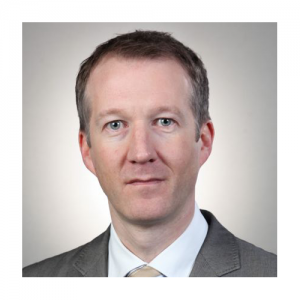Prospering in the Power Industry: Q&A with Simon Sutton – Part 1
 Power industry career paths aren’t always linear. This was the case for Doble’s new EMEA Technical Solutions Director, Simon Sutton. With a technical background in cables and active leadership in industry working groups, Simon is focusing on strengthening customer relationships and seeking out innovative ways to collaborate with clients. Eager to learn more about his work in the power industry, we took a moment to catch up with Simon and hear about his experience.
Power industry career paths aren’t always linear. This was the case for Doble’s new EMEA Technical Solutions Director, Simon Sutton. With a technical background in cables and active leadership in industry working groups, Simon is focusing on strengthening customer relationships and seeking out innovative ways to collaborate with clients. Eager to learn more about his work in the power industry, we took a moment to catch up with Simon and hear about his experience.
What led you to a career in the power industry?
I didn’t actively set out to join the power industry; I had previously worked on a few research projects relating to the properties of materials under high voltage conditions and applied for a post-doctoral position at a university, which was sponsored by a transmission company. The next thing I know I had an interview with the sponsor company instead of the school and ended up managing the project I had initially applied to work on. The rest, as they say, is history.
Which key milestones, pieces of advice, or events have impacted your career the most?
When I look back on my career, there are a few things that really stand out. Working in Japan for two years was an amazing experience, and I’m very grateful for the opportunity. Choosing to leave National Grid (UK) after nearly 12 years, and move out of my comfort zone into a more customer relationship and marketing focused role, was a big decision to make, and scary at the time. The shift into unfamiliar territory was rewarding as I developed a whole new skill set that led to new opportunities. I also feel proud when I see how some of the staff who have worked for me over the years have developed. As a manager, watching that growth is one of the most exciting parts of the job.
My ongoing engagement with CIGRE has also led to a variety of new opportunities, contacts, friends, and technical insights. I currently represent the United Kingdom on the Study Committee for Materials and Emerging Test Techniques (SC D1), which supports the work of many other committees by providing technical output on the properties, aging and testing of solids, liquids and gases. Within the Study Committee, I lead the advisory group on solid materials, which proposes topics for new working groups and sets the terms of reference, thereby defining the scope. I’ve also recently become the secretary for a working group on corrosion, in which we are developing a guide to help non-experts understand corrosion, what causes it and how it can be mitigated.
What do you most enjoy about the type of work you do?
Although I am new to Doble, I have known some of the Doble staff for many years so there is something familiar and comforting about working here. There is a tremendous variety to the work, which I really enjoy, and every day is different. I’m currently working on several initiatives which will hopefully deliver better service for our clients and free up internal resources to focus on more productive and strategic activities. Both projects will have a significant impact on the organization and its stakeholders, and seeing positive changes is always rewarding.
In your opinion, what has been the most important technical development in the power and energy business in the past decade?
This is a tough question to answer, but I’m going to say the massive drop in the cost of solar panels, which has fallen 60 percent in the past decade. Apart from this having a massive impact on grids in developed countries, off-grid communities in some of the poorest parts of the world are now benefiting from cheap, reliable electricity which is transforming lives and raising the standard of living.
What do you see as the biggest pain point for the power industry today, and how is technology making it better?
The rate of technological change is probably the biggest pain point. To an extent, technology is both the problem and the answer. Utilities are used to operating in a slow changing environment, and yet customers are driving the rapid adoption of roof top solar and electrical vehicles. This is having a massive impact on distribution grids. At the same time, large-scale renewable generation is impacting transmission grids, forcing this infrastructure to be more flexible and responsive. Technology offers a solution through giving teams better observation of what is happening across the whole grid. The roll-out of smart meters is an example of short-term pain for hopefully long-term gain.
It’s also fair to say the current generation of utility engineers lack the skills necessary to meet the challenges that come with digitizing the grid, including big data and cybersecurity. There needs to be either a significant retraining of existing staff or an industry focus on recruitment to attract candidates that can help overcome these challenges.
Do you have any recommendations for young engineers looking to break into the power and energy industry?
It’s a great time to move into the energy industry – there’s so much happening right now, such as the rise of renewables, digitization and evolution of distribution system operators (DSO). Organizations are investing tremendously in their network infrastructure to better maintain the backbone of the power grid. These changes provide opportunities for the next generation of young engineers to work in a dynamic and challenging environment.
Additional Information
Interested in careers in the power and energy field? Check out our current openings.










